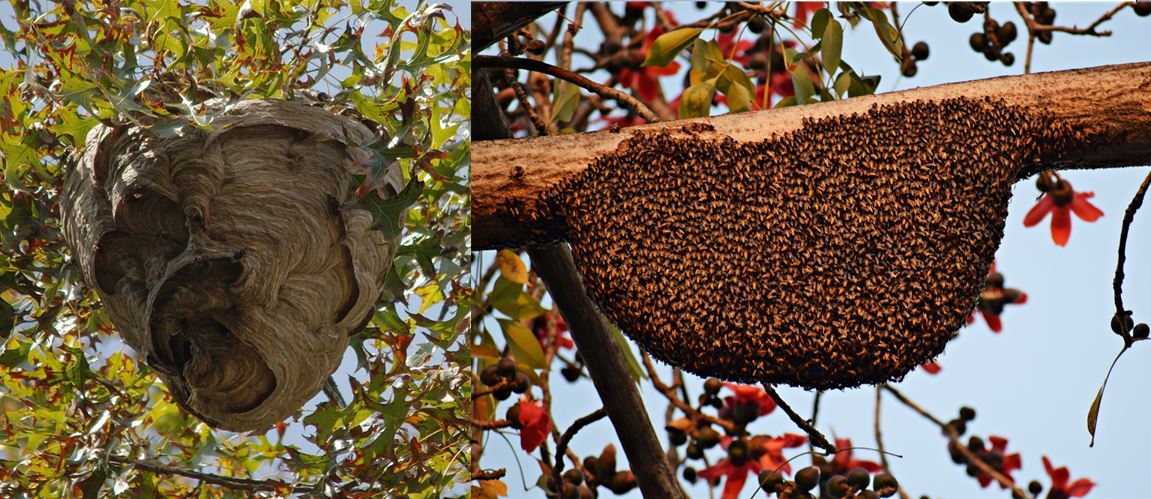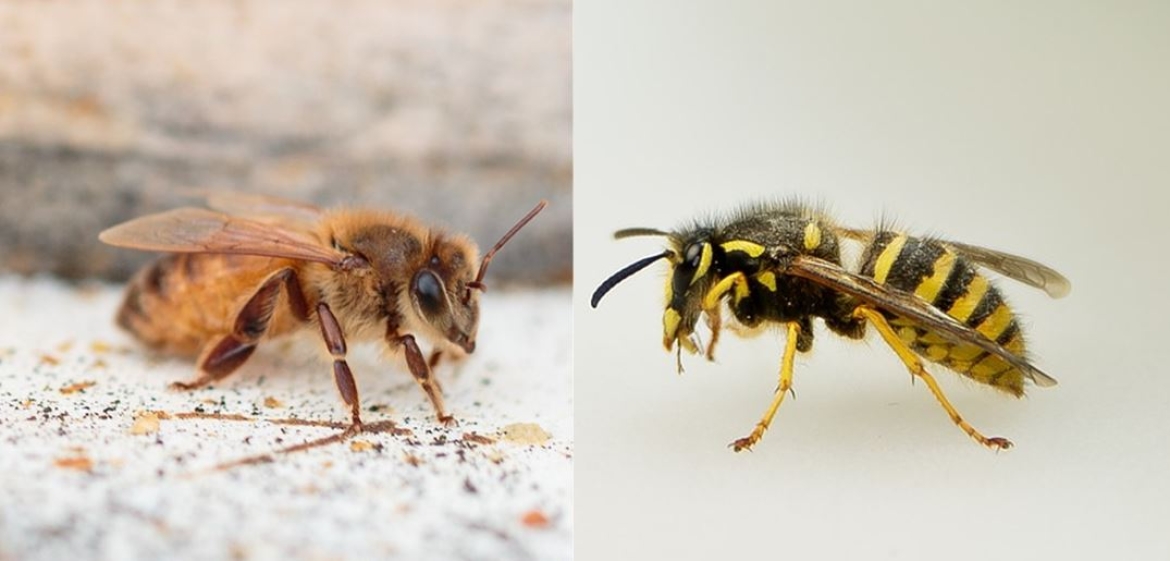For the untrained eye, bees and wasps may just look the same. This is why most people don’t even know how to distinguish between these two stinging insects. However, knowing the difference between wasps and bees can go a long way to help experts in pest control Dublin deal with them properly and effectively.
Wasps and bees are often feared and dreaded for their painful stings, but believe it or not, these insects are separated by an evolution of 130 million years, resulting in major differences in their anatomy, nest structure, and behaviour.
While bees have an important role to play in the life cycle of most plants, wasps don’t pollinate and may even be a nuisance to humans.
The following are the three primary methods you can use to help you distinguish wasps and bees from each other.
Anatomy
Bees, including honeybees and bumblebees, are fuzzy. Wasps, on the other hand, are noticeably smooth. Wasps can also be black and yellow, or completely black. Meanwhile, bees have two colours with stripes on their abdomen.
With yellow jacket wasps as the only exception, most wasps are bigger compared to honeybees. Their legs are also longer, and their midsection is also more tapered, connecting the abdomen and the thorax.
The overall aggressive appearance of wasps suits their temperament, and they even have a stinger with multiple uses to back it up.
Behaviour
The honeybees live in big colonies known as hives made up of thousands of members that work together to collect the pollen and nectar required for the production of honey. Once they feel threatened, bees will fight to defend and protect their hives. But without any threats, most honeybees exhibit less aggression compared to wasps.
The stinger of honey bees has a barbed tip that tears out from the insect after it stung, which results in the death of the bee. This is why the stinger of honey bees is only a one-time use weapon that encourages more defensive behaviour instead of offensive.
On the other hand, wasps are more predatory. They don’t spread pollen, collect nectar, or produce honey. These insects mainly survive by feeding on other insects. Some wasps also rely on scavenging. Wasps are also more inclined to show aggression, with straight-tipped stingers that can easily deliver multiple painful stings that won’t injure the insect, unlike in the case of bees.
Hives and Nests

You can easily distinguish wasps from bees by looking at the location, building material, and shape of their hives and nests. Honey bees and their fuzzier and fatter cousins, the bumble bees, often live in hives made from a waxy substance. You can spot a honeycomb cell pattern attached to trees, in attics, and exposed in bushes, especially if they cannot find better locations. However, beehives shouldn’t look papery.
The nests of wasps are made of a papery substance with an umbrella-like shape with open cells on the lower part. They may also have a bulbous shape and be smooth with paper walls. You can often find wasp nests in roofs, eves, corners, and other structures. These papery nests can hold several hundred of these insects.
Yellow jacket wasps may also seek refuge in your attic. Some even build their nests in the ground, holding thousands of these stinging predators. It is also important to note that wasp nests don’t contain wax or honey.
Benefits of Bees and Wasps to the Ecosystem
Even though most people are aware of the benefits of bees to the ecosystem, many may not be familiar with the fact that wasps also have their role in the environment. This is despite being infamously known as an aggressive nuisance.
As you might already know, bees are amazing pollinators. With the help of the hairy short legs, bees can collect and transport more than 80% of the pollen that most vegetable-seed plants, fruits, and legumes need to reproduce.
If all the bees on the planet were extinct, there would be a drastic change in the human diet because most of the available foods would diminish or even disappear without the help of bee pollination. In particular, coffee would become rare and expensive because the coffee flower only opens for pollination during a window period of a few days per year.
The next time you feel tempted to stomp on the bee that lands on the cup of your morning coffee you are enjoying outside on your porch, you might want to think twice and consider the benefits that bee pollen has to offer.
While wasps may not be excellent as pollinators like honeybees, they still serve their purpose. Wasps act more as natural pest control. These predators feed their young with other insects. Preying mainly on flies, crickets, and caterpillars, just to mention a few, the hostile wasps can help in controlling the population of different insects that can kill valuable crops.
Seeing a yellow jacket might make you want to destroy it right away, especially if it startled you with its intimidating appearance. However, as long as their nest is located at a safe distance away from your home, your best course of action, in this case, is to just leave the wasp alone.
While bees and wasps are two insects that you wouldn’t want to nest near or inside your home, proper identification of the insect can help you determine a suitable plan of action to deal with them accordingly.
Physical appearance, behaviour, and nesting habits are the three major things you should watch out for to know which of these two pests is causing you trouble.
But if you fear or suspect that you might already be facing a serious bee or wasp infestation around or in your home, you should make the move before it gets worse. The good news is that all it takes is a phone call to the experts on pest control Dublin and you can finally free yourself from the worries of knowing that some bees or wasps may bring harm to you and your family.
Don't hesitate to contact The Wasp Specialist in Dublin for your wasp nest removal needs.Call The Wasp Specialist in Dublin: (01) 452 3680
Email Us: This email address is being protected from spambots. You need JavaScript enabled to view it.
or fill out the Online Form

